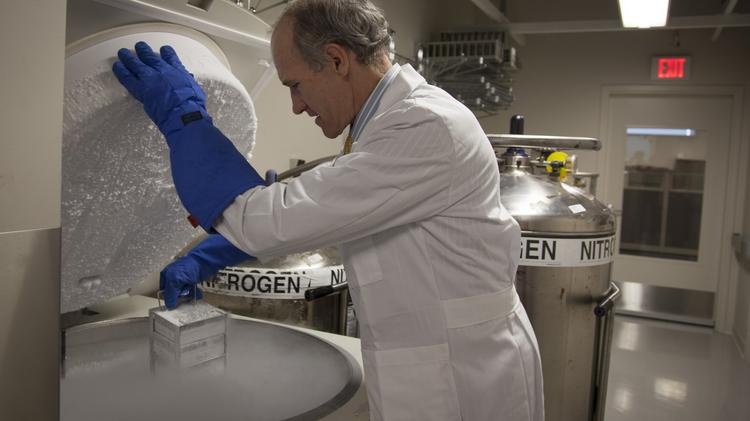|
By Philadelphia Business Journal The Food and Drug Administration approved a personalized cellular therapy treatment for leukemia developed by researchers at the University of Pennsylvania and Children’s Hospital of Philadelphia.
The T-Cell therapy, which will be marketed by Novartis as Kymriah, was OK'd as treatment for patients up to 25 years of age with B-cell precursor acute lymphoblastic leukemia that is refractory, or in second or later relapse. In 2012, Penn and Novartis — a Swiss drug company that has its U.S headquarters in New York — entered into a global collaboration to further research, develop and commercialize Kymriah and other CAR-T cell therapies for the treatment of cancers. The therapy treats cancer by boosting the ability of a patient's own immune systems to identify and kill tumors is based on technology developed by a team of researchers led by Dr. Carl June, director of the Center for Cellular Immunotherapies at Penn's Abramson Cancer Center. Kymriah is the first therapy based on gene transfer approved by the FDA. “This is a turning point in the fight against [B-cell precursor acute lymphoblastic leukemia] that opens up opportunities for patients across the world who desperately need new options,” June said. “We’re excited and proud to have moved this CAR therapy, in collaboration with Novartis and CHOP, through all phases of development and clinical trials, established its efficacy, and now extended its reach to children across the country under this FDA approval. We hope the momentum behind the technology builds as we continue to investigate the abilities of personalized cellular therapeutics in blood cancers and solid tumors to help patients with many other types of cancer.” The bio-engineered T-cell therapy was first used at CHOP to treat leukemia patient Emily Whitehead, who was 6 years old when her leukemia stopped responding to conventional treatments. She has now been cancer-free for five years. "Emily’s cancer remains in remission, and in larger trials, we’re seeing overall remission rates over 80 percent, which is a remarkable improvement upon previous treatment success rates,” said Dr. Stephan Grupp, lead investigator of the CHOP and global trials of the therapy. Grupp is director of the cancer immunotherapy frontier program and chief of cell therapy and transplant program at CHOP. Read More. Comments are closed.
|
Categories
All
Archives
July 2023
|



 RSS Feed
RSS Feed